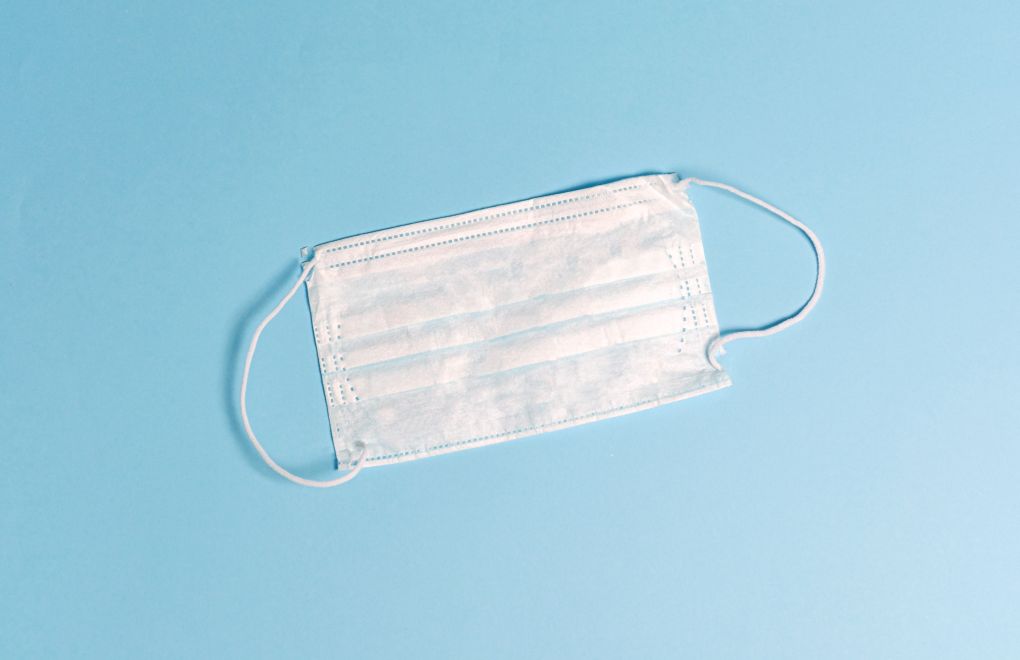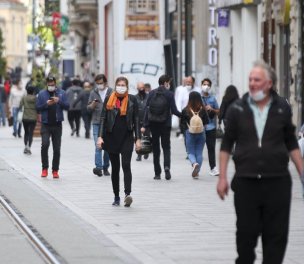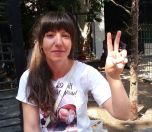* Photo: Anna Shvets / Pexels
Click to read the article in Turkish / Kurdish
Eight people, including the Kadıköy District Co-Chair of the Peoples' Democratic Party (HDP) Nimet Çelebi Erdoğan, were fined 3,469 lira each during a Newroz celebration in Kadıköy's Fikirtepe on March 18.
"The failure to observe the mask, physical distancing and hygiene rules" as per the Article 282 of the Law on Public Health was cited as the reason for the fine which was imposed by a police report.
As reported by Muhammet Enes Sezgin from Mezopotamya Agency (MA), the ones fined during the celebration were informed about it when they received a notification from the İstanbul Tax Office on October 27.
ID check and police report
HDP's Nimet Çelebi Erdoğan, one of the eight people expected to pay the fine, has said the following about the day of the incident:
"After an hour passed after the celebration, 40 motorcycle police officers and Counterrterrorism police officers came to us. They loudly asked, 'Who is holding this celebration here? From whom did you get a permission? What are you doing?' I said it was the event of the party and it was not a crime. They asked us to put out the fire. Then, they did an ID check."
After this, the police took down a report, telling them to sign it without showing the report, according to Çelebi Erdoğan: "We did not sign it as we had not read it and there was no situation constituting a crime."
'We had our masks on; there are images'
Noting that they heard about the fines after they received the notifications on October 27, Erdoğan has said that "mask, physical distancing and hygiene rules" were cited as the reason for the fine.
She has noted that the pandemic was considered during the celebration: "Everyone there was wearing masks and attention was paid to social distancing. There are in fact images and videos of that moment."
HDP's Nimet Çelebi Erdoğan has announced that they will appeal against the fines: "This fine has nothing to do with masks or distance. This is a fine imposed to intimidate us. This fine is a proof of the state's policy of grudge and hatred against Kurdish people and Newroz. We don't pay it; we won't pay it. And we will celebrate it whenever it is Newroz."
Courts say fines 'aren't lawful'
Both the ones who violated the pandemic curfews and those who did not observe the mask rules were generally fined 3,180 lira in Turkey as per the Article 282 of the Law no. 1593 on Public Health. In fact, the lowest limit of fines as per the Tax Procedure Law is 789 lira.
Speaking to bianet in the period when weekend and night curfews were still in place, lawyer Gökmen Yeşil from the Progressive Lawyers Association (ÇHD) said that the administration, namely police officers and the Governor's Office, does not have the authority to impose such fines.
The precedent court rulings in Ankara, Adana and Bolu also confirm this comment. Courts have been cancelling the fines on different grounds.
Most recently, the administrative fines imposed on discharged teachers Nursel Tanrıverdi and Selvi Polat, who were protesting for reinstatement at İstanbul's Bakırköy Square, were cancelled by courts.
The Bakırköy 5th and 6th Criminal Judgeships of Peace concluded that as the curfew was not imposed by law, no fines could be imposed.
The judgeships also noted that the reason for imposing the fine on the upper limit (3,150 lira) was not explained.
What is Newroz? Newroz refers to the celebration of the traditional Iranian peoples' New Year holiday of Nowruz in Kurdish culture. Before the Islamization of the Iranic peoples in Asia, the ancestors of the modern Kurds followed Zoroastrianism. In Zoroastrian doctrine, fire is a symbol of sight, goodness and purification. Angra Mainyu, the demonic antithesis of Zoroastrianism, was defied by Zoroastrians with a big fire every year, which symbolized their defiance of and hatred for evil and the archdemon. Newroz is mainly, in the modern age, affiliated with Kurds, who in turn make up the majority of the Alevi population, an Islamized version of the Zoroastrian religion. In Kurdish legend, the holiday celebrates the deliverance of the Kurds from a tyrant, and it is seen as another way of demonstrating support for the Kurdish cause. The celebration coincides with the March equinox which usually falls on 21 March and is usually held between 18 and 24 March. The festival has an important place in terms of Kurdish identity for the majority of Kurds, mostly in Iraq, Turkey and Syria. Though celebrations vary, people generally gather together to welcome the coming of spring; they wear coloured clothes and dance together. *Source: Wikipedia |
(AS/SD)







-132.jpg)
